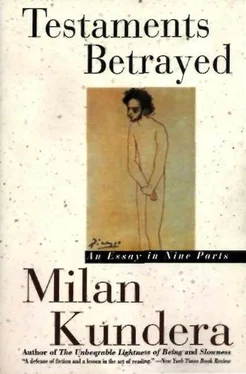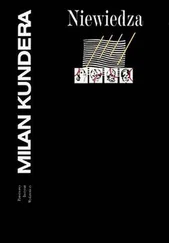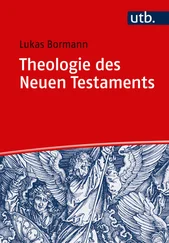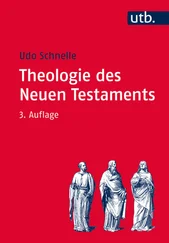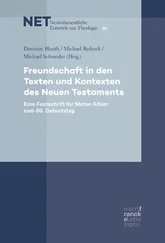I will never get to the bottom of the Brod mystery. And Kafka?-what did he think? In his 1911 diary, he tells this story: one day the two of them went to see a cubist painter, Willi Nowak, who had just finished a series of lithograph portraits of Brod; in the Picasso pattern as we know it, the first drawing was realistic, whereas the others, says Kafka, moved further and further off from their subject and wound up extremely abstract. Brod was uncomfortable; he didn't like any of the drawings except for the realistic first one, which, by contrast, pleased him greatly because, Kafka notes with tender irony, "beyond its looking
like him, it had noble and serene lines around the mouth and eyes…"
Brod understood cubism as little as he understood Kafka and Janacek. Doing his best to free them from their social isolation, he confirmed their aesthetic aloneness. The real meaning of his devotion to them was: even a person who loved them, and thus was most disposed to understand them, was alien to their art.
I am always surprised by peoples amazement over Kafka's (alleged) decision to destroy all his work. As if such a decision were a priori absurd. As if an author could not have reasons enough to take his work along with him on his last voyage.
It could in fact happen that on final assessment the author realizes that he dislikes his books. And that he does not want to leave behind him this dismal monument of his failure. I know, I know, you'll object he is mistaken, that he is giving in to an unhealthy depression, but your exhortations are meaningless. He's in his own house with that work, not you, my dear fellow!
Another plausible reason: the author still loves his work but not the world. He can't bear the idea of leaving the work here to the mercy of a future he considers hateful.
And yet another possibility: the author still loves his work and doesn't even think about the future of the world, but having had his own experiences with the public, he understands the vanitas vanitatum of art, the inevitable incomprehension that is his lot, the
incomprehension (not underestimation, I'm not talking about personal vanity) he has suffered during his lifetime and that he doesn't want to go on suffering post mortem. (It may incidentally be only the brevity of life that keeps artists from understanding fully the futility of their labor and making arrangements in time for the obliteration of both their work and themselves.)
Aren't these all valid reasons? Of course. Yet they weren't Kafka's reasons: he was aware of the value of what he was writing, he had no declared repugnance for the world, and-too young and nearly unknown- he had had no bad experiences with the public, having had almost none at all.
Kafka's testament: not a testament in the precise legal sense; actually two private letters; and not even true letters, in that they were never posted. Brod, who was Kafka's legal executor, found them after his friend's death, in 1924, in a drawer among a mass of other papers: one in ink, folded and addressed to Brod, the other more detailed and written in pencil. In his "Postscript to the First Edition" of The Trial, Brod explains: "In 1921… I told my friend that I had made a will in which I asked him to destroy certain things [dieses unci jenes vernichten], to look through some others, and so forth. Kafka thereupon showed me the outside of the note written in ink which was later found in his desk, and said: 'My last testament will be very simple: a request that you burn everything.' I can still remember the exact wording of the answer I gave
him: '… I'm telling you right now that I won't carry out your wishes." Brod evokes this recollection to justify disobeying his friend's testamentary wish; Kafka, he continues, "knew what fanatical veneration I had for his every word"; so he was well aware that he would not be obeyed and he "should have chosen another executor if his own instructions were unconditionally and finally in earnest." But is that so certain? In his own testament, Brod was asking Kafka "to destroy certain things "; why then wouldn't Kafka have considered it normal to request the same service of Brod? And if Kafka really knew that he would not be obeyed, why, after their conversation in 1921, did he write that second, penciled letter, in which he elaborates his instructions and makes them specific? But let's drop it: we'll never know what these two young friends said to each other on a subject that was, by the way, not their most urgent concern, since neither one of them, and Kafka especially, could at the time consider himself in serious danger of immortality.
It's often said: if Kafka really wishecl to destroy what he had written, he would have destroyed it himself. But how? His letters were in the hands of the recipients. (He himself kept none of the letters he received.) It's true that he could have burned his diaries. But they were working diaries (more notebooks than diaries), they were useful to him for as long as he was writing, and he wrote until his very last days. The same can be said of his unfinished works. Only in the event of death would they be irremediably unfinished; while he was still alive he could always get back to them. Not even a story he considers a failure is useless to a writer, as it can become material for
another story. As long as he is not dying, a writer has no reason to destroy something he has written. But when Kafka was dying he was no longer in his home, he was in a sanatorium and unable to destroy anything, he could only count on a friend's help. And not having many friends, having finally but one, he counted on him.
People also say that wanting to destroy one's own work is a pathological act. In that case, disobeying Kafka's destructive wish becomes loyalty to the other Kafka, the creator. This touches on the greatest lie of the legend surrounding his testament: Kafka did not want to destroy his work. He expressed himself with utter precision in the second of those letters: "Of all my writings, only the books are worthwhile [gelten]: Judgment, Stoker, Metamorphosis., Penal Colony, Country Doctor, and a story: 'Hunger Artist.' (The few copies of Meditations can stay, I don't want to put anyone to the trouble of pulping them, but nothing from that book is to be reprinted.)" Thus, not only did Kafka not repudiate his work, but he actually assessed it and tried to separate what should survive (what could be reprinted) from what fell short of his standards; there is sadness, severity, but no insanity, no blindness of despair, in his judgment: he finds all his published books worthwhile except the first, Meditations, probably considering it immature (that would be hard to contradict). His rejection does not automatically concern everything unpublished, for he includes among the "worthwhile" works the story "A Hunger Artist," which at the time he wrote the letter existed only in manuscript. Later on, he added to that piece three more stories ("First Sorrow," "A Little
Woman," and "Josefine the Singer") to make a book; he was correcting the proofs of this book in the sanatorium on his deathbed-nearly poignant evidence that Kafka had nothing to do with the legend of the author wanting to destroy his work.
His wish to destroy thus concerns only two clearly defined categories of writing:
– in the first place, most emphatically: the personal writings: letters, diaries;
– in the second place: the stories and the novels he had not, in his judgment, succeeded in bringing off.
I am looking at a window across the way. Toward evening the light goes on. A man enters the room. Head lowered, he paces back and forth; from time to time he runs his hand through his hair. Then, suddenly, he realizes that the lights are on and he can be seen. Abruptly, he pulls the curtain. Yet he wasn't counterfeiting money in there; he had nothing to hide but himself, the way he walked around the room, the sloppy way he was dressed, the way he stroked his hair. His well-being depended on his freedom from being seen.
Читать дальше
